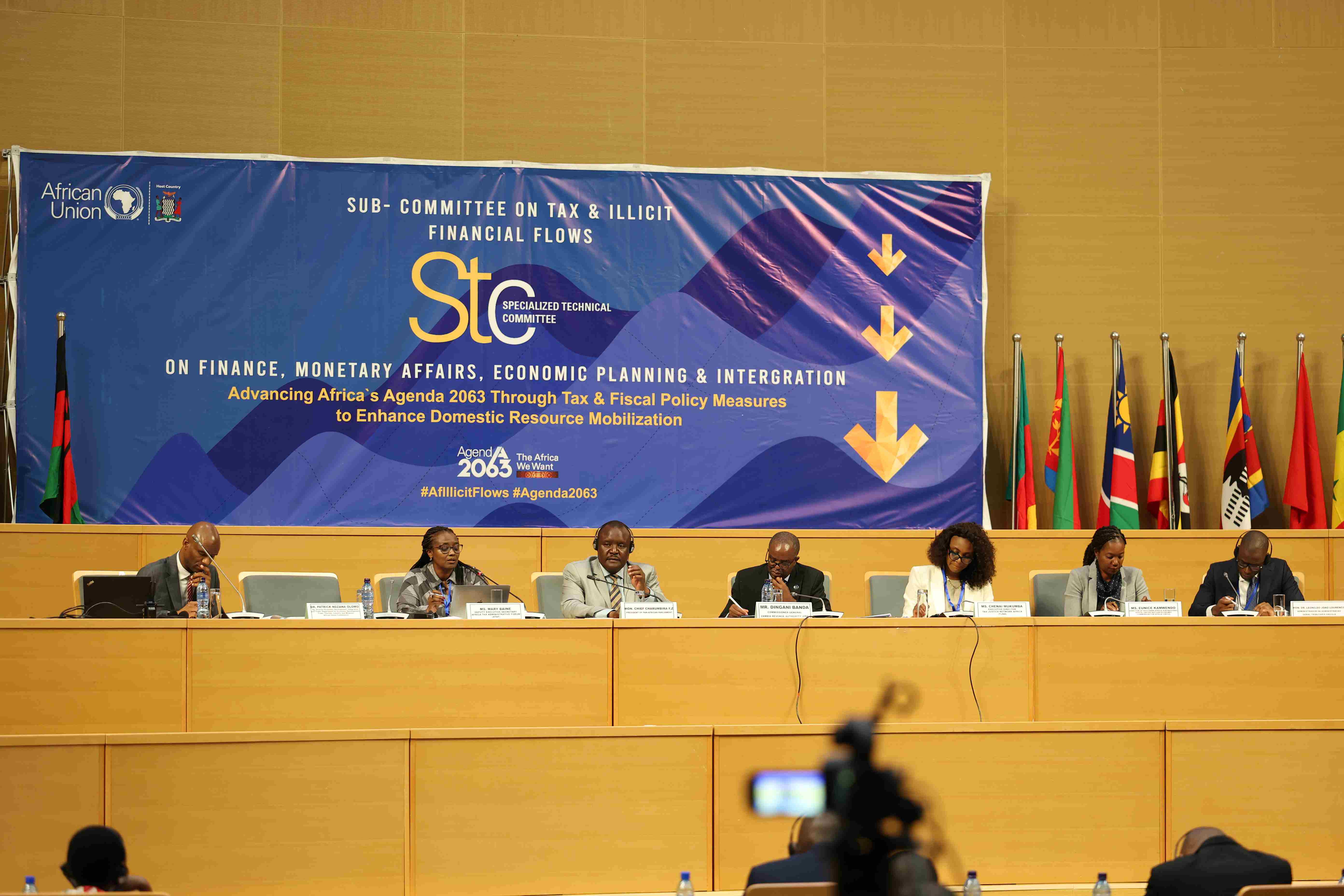Date

Tax Justice Network Africa (TJNA) reaffirmed its commitment to advancing a fair, transparent, and inclusive tax system across the continent during the 4th Session of the African Union Sub-Committee on Tax and Illicit Financial Flows, held from 12 to 16 May 2025 in Lusaka, Zambia.
Held under the theme "Advancing Africa’s Agenda 2063 Through Tax and Fiscal Policy Measures to Enhance Domestic Resource Mobilisation,” the meeting marked a crucial milestone in promoting Africa’s revenue-raising efforts.
The meeting, attended by delegates from African countries, reflected growing consensus that tackling IFFs and advancing tax justice are not peripheral concerns, but rather urgent imperatives. With the continent losing billions of dollars annually to tax evasion, avoidance, and illicit financial flows, TJNA stressed that impeding the loss of and reclaiming Africa’s stolen resources is central to dismantling inequality and financing inclusive development.
However, as governments strive to raise tax-to-GDP ratios, currently well below global averages, the need to centre equity, transparency, and public accountability in all tax policy reforms ought to be prioritised
TJNA has consistently advocated for Africa to play a proactive role in shaping a just global financial architecture. The meeting echoed this vision, with support for the United Nations Framework Convention on International Tax Cooperation. For TJNA, this UN-led process is a historic opportunity to shift power from exclusive, OECD-dominated spaces toward a more democratic and inclusive global tax governance framework.
In her opening remarks, TJNA’s Executive Director, Ms. Chenai Mukumba, remarked that “Inclusive policymaking is not merely a symbolic gesture; it is a strategic necessity for Africa's progress.” She added that, “This is our opportunity to advocate for global tax rules that are inclusive, equitable, and reflective of the realities faced by developing countries.” “It is essential for us to remain united, strategic, and vocal in this effort,” Ms. Chenai noted.
Financial transparency was another priority. TJNA’s Senior Policy Officer, Ms. Everlyn Muendo, lauded progress made by African countries in adopting beneficial ownership legislation, with some countries implementing legal frameworks or public registries as of 2023. However, she cautioned that legal frameworks alone are insufficient without effective enforcement and cross-border cooperation.
“Tackling IFFs and reforming unjust global tax rules are essential to achieving Africa’s developmental aspirations under Agenda 2063. We support the United Nations Framework Convention on International Tax Cooperation, as it is a pivotal opportunity towards a more equitable, representative global tax governance structure,” Ms. Muendo added.
In his remarks, the Commissioner General of the Zambia Revenue Authority, Mr. Dingani Banda, noted, “Tax policy fragmentation and exclusionary policymaking have meant that multinationals do not pay their fair share, while Africa continues to lose billions through tax base erosion and illicit financial flows.”
The African Union Commission (AUC), ATAF, TJNA, and UNECA were called upon to provide coordinated technical and political support during this critical phase.
In her remarks, ATAF’s Deputy Executive Secretary, Ms. Mary Baine, described Africa’s current position on global tax reform as a “once-in-a-lifetime opportunity” to secure fairer rules. She emphasised the need for sustained capacity building, homegrown solutions, and strong representation in the G20, UN, and other global forums.
At the conclusion of the meeting, the Acting Director of Economic Development, Integration and Trade at the African Union Commission, Dr. Patrick Ndzana Olomo, commended delegates for their active engagement throughout the meeting, describing it as instrumental in advancing the continent’s tax and financial transparency agenda.
“We have adopted key recommendations and strengthened the capacity of Member States on beneficial ownership transparency and other key areas. This meeting has been instrumental; I sincerely thank all Member States and their representatives for their active participation. We now look forward to the effective implementation of the outcomes agreed upon.”
TJNA remains committed to advocating for inclusive tax reforms that address systemic inequalities and ensure that taxation serves as a tool for social and economic justice.
Related resources:
-
TJNA calls for international financial architecture overhaul at 2025 Club de Madrid Policy Dialogue.
For more information on the 4th session of the Sub-Committee on Tax and Illicit Financial Flows (IFFs), please contact Everlyn Muendo at emuendo[@] taxjusticeafrica.net.